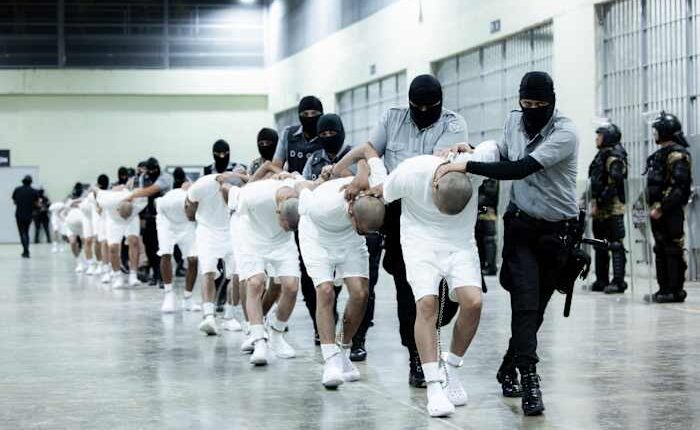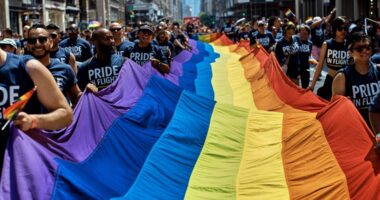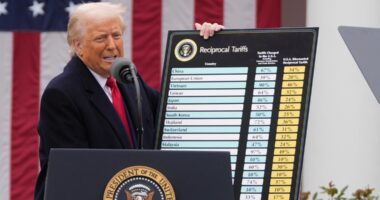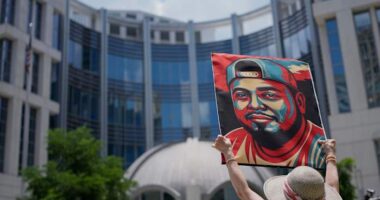
The administration of President Donald Trump has admitted to erroneously deporting a man from Maryland who had protected legal status to a well-known prison in El Salvador. However, officials are resisting the idea of bringing him back to American federal custody due to alleged connections to a gang.
U.S. Immigration and Customs Enforcement (ICE) officials confessed to an “administrative error” in a court filing made on Monday night concerning the deportation of the 29-year-old man. This revelation sparked immediate outrage among supporters of immigration rights.
According to a complaint filed by his legal team in federal court, Kilmar Armando Abrego Garcia was arrested on March 12 after finishing work as a sheet metal worker apprentice at a construction site in Baltimore.
Abrego Garcia was then sent to a notorious prison in his home country, the Terrorism Confinement Center, or CECOT, which activists say is rife with abuses and where inmates are packed into cells and never allowed outside.
He was placed at CECOT despite an immigration judge’s ruling in 2019 that he not be deported to El Salvador because he had established it was “more likely than not that he would be persecuted by gangs,” according to his lawyer’s complaint.
Abrego Garcia “left El Salvador when he was around sixteen years old, fleeing gang violence,” according to the complaint. “Beginning around 2006, gang members had stalked, hit, and threatened to kidnap and kill him in order to coerce his parents to succumb to their increasing demands for extortion.”
“Although he has been accused of general ‘gang affiliation,’ the U.S. government has never produced an iota of evidence to support this unfounded accusation,” the complaint stated, adding that Abrego Garcia is neither a member of nor affiliated with MS-13 or any other criminal or street gang.
Abrego Garcia’s wife later saw him in photos and video of him at the prison, identifying her husband through his distinctive tattoos and two scars on his head, the complaint stated.
The Trump administration said in its court filing that ICE “was aware of his protection from removal to El Salvador,” but still deported Abrego Garcia “because of an administrative error.”
The administration argued against his return to the U.S., citing alleged gang ties and claiming that he is a danger to the community. The administration stated that his gang ties were confirmed at a 2019 bond proceeding and upheld by the Board of Immigration Appeals.
“This was an oversight, and the removal was carried out in good faith based on the existence of a final order of removal and Abrego-Garcia’s purported membership in MS-13,” Robert Cerna, ICE’s acting field office director of enforcement and removal operations, wrote in a statement to the court.
Copyright 2025 The Associated Press. All rights reserved. This material may not be published, broadcast, rewritten or redistributed without permission.

















